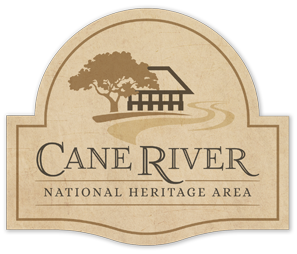
FOR IMMEDIATE RELEASE
Cane River & Natchitoches to receive National Park Service Community Assistance Grant to Develop a Comprehensive Outdoor Recreation Plan for the Region
ATLANTA – Today, the National Park Service (NPS) Rivers, Trails, and Conservation Assistance Program (RTCA) announced the selection of nine new communities and partners across the South Atlantic-Gulf Region to receive expert NPS consultation to help spur local recreation, conservation, and economic development opportunities.
The recipients — located in Alabama, Kentucky, Louisiana, and North Carolina — were selected through a competitive process and will receive assistance to help make their rivers, trails, greenways, and open spaces vital, life-enhancing parts of their communities.
“The RTCA assistance program helps the NPS advance its stewardship mission while expanding local outdoor recreation options,” said Deirdre Hewitt, regional RTCA program manager, NPS. “By investing in the future of communities across the southeast, we create new opportunities for people of all backgrounds to explore, experience, and enjoy this region.”
In Louisiana, the Natchitoches and Cane River Comprehensive Outdoor Recreation Plan was selected to establish a recreation and conservation network that’s accessible and connected to local communities and the city of Natchitoches. The Cane River National Heritage Area (CRNHA) preserves the unique cultural, historic, and natural landscape of the Cane River region. The heritage area features an abundance of outdoor recreational possibilities including boating, kayaking, fishing, hiking, and camping along the 35-mile-long Cane River Lake.
“Over the years, Natchitoches residents and community partners have had great success in leading grassroots efforts to build a consistent preservation and cultural conservation mindset,” remarked Rebecca Blankenbaker, Cane River National Heritage Area Executive Director. By comparison, our outdoor recreation planning, and natural resource conservation has lagged, with individual projects developing sporadically rather than a deliberate and planned approach. “As recreational tourism builds in the region, we’re hopeful that this project will allow us to build consensus and develop a plan with community partners for a long-term outdoor recreation strategy that incorporates existing resources and identifies future projects and strategies,” continued Blankenbaker.
CRNHA, a non-profit that uses a grassroots approach to heritage conservation and economic development, is partnering with the NPS’s RTCA and National Center for Preservation Technology and Training (NCPTT) Programs, along with local community groups to develop an outdoor recreation plan that identifies and maps these recreational resources and opportunities throughout the 116,000 acres of the heritage area.
“We are excited to participate in this community-led planning effort to improve recreation and conservation opportunities for everyone across Natchitoches,” said Andy Ferrell, NCPTT deputy director.
Other states selected for this year’s RTCA projects feature work aimed at the development of parks, digital guides, and cultural and nature trails:
ALABAMA
Elba Outdoor Recreation Plan Development
In the quaint and historic community of Elba, consistently flooding properties near the Pea River present an opportunity for the establishment of new parks that offer access to recreation, as well as flood retention areas to better withstand heavy rain events. With the assistance of the NPS, the city looks to develop a community-supported master plan to guide the future parks’ progress for years to come. Goals of the planning effort include new river access points, walking and biking trails, and the construction of a pedestrian bridge. By expanding the city’s outdoor recreation infrastructure, the city seeks to attract residents and visitors to the downtown area and its parks for enhanced recreation, social, economic and health benefits.
KENTUCKY
Bourbon County Recreational Trails Program
Just outside Lexington, the city of Paris and Bourbon County aim to continue the successful momentum from a recently adopted Bike & Pedestrian Master Plan by developing a new phased trail system conceptual plan. Several of the identified trails would run adjacent to the county’s many idyllic streams and create non-motorized connections from neighborhoods to schools, city services and recreational facilities. With NPS assistance and after extensive engagement from the local communities, the finalized conceptual plan will identify the goals, strategy and tactics for developing a network of alternative transportation trails close to home for pedestrians and cyclists.
Liberty/Casey County Trail Towns
The Kentucky Trail Towns Program offers cities and towns the opportunity to showcase their outdoor trails, forests and waters to adventure seekers who are looking for hotels, restaurants, entertainment and other conveniences. The City of Liberty and Casey County Trail Town Task Force hope to achieve Kentucky Trail Town status by implementing recommendations from the Recreation Facilities Master Plan Concept Report completed with the NPS. The report recommended new trail linkages, kayak access points, hiking trails, signage and expanded outdoor recreation marketing among others. Now, local community members will be able to offer input and suggestions, prioritizing the recommendations for the city and county to implement and eventually join 25 other official Kentucky Trail Towns in successfully attracting visitors and long-distance trail users.
NORTH CAROLINA
Black Mountain Greenways and Parks
Set against the Appalachian Mountains in Western North Carolina, the picturesque Town of Black Mountain has access to the Pisgah National Forest, the city of Asheville, and several regional state parks. To further expand the town’s recreational opportunities, the Black Mountain Greenways and Trails Committee (BMGTC) seeks official Trail Town designation through a new master plan for a 25-acre park, reimagining existing concept and strategic plans and strengthening the organizational structure of the BMGTC. NPS will partner with the BMGTC to provide facilitation, conceptual planning and organizational development assistance to realize the goals of the project and increase the town’s recreational offerings.
Blue Economy Corridor Development in the Eastern Tar-Pamlico River Basin
When coastal communities balance conservation and coastal activities, the blue economy built upon the sustainable use and permanent preservation of our oceans and watersheds thrives. In the eastern Tar-Pamlico river basin, researchers at East Carolina University (ECU) aim to
develop the river’s blue economy corridor by creating a digital map that features existing assets on the river. To do this, ECU has hosted and will host community meetings in the four-county area to gather information related to the region’s socio-cultural, environmental and hospitality assets, among others. The NPS will assist in facilitating the meetings and will help coordinate the data gathering for the digital map. Once ready, the map will empower visitors to locate desired sites along the Tar-Pamlico River while also allowing ECU to study any asset gaps from
the project’s results and find opportunities to remedy those gaps.
Cherokee Cultural River Trails
To develop the public’s understanding of the relationship of rivers to the culture of historic and contemporary Cherokee residents, the Nikwasi Initiative, which serves as a bridge between the Eastern Band of Cherokee Indians (EBCI) and the communities of Franklin, desires to establish the Little Tennessee and Oconaluftee Rivers as official cultural river trails. Partnering with the EBCI, the non-profit American Rivers, the North Carolina Smoky Mountain Blueways National Water Trail and the NPS, the project will evaluate the two rivers for new river access points and conservation areas as well as develop a signage and interpretation plan that shares the cultural bond between the Cherokee Indians and the rivers. Through extensive public engagement of the Cherokee people, paddlers, other river users and local community members, the partnership hopes to achieve the first cultural river trail in the local region and the state of North Carolina. The NPS will also assist in developing a friend's group to ensure the long-term sustainability of the project so that paddlers can experience the rich history and connections between the Cherokee Indians and the rivers for years to come. This project is sponsored in part by the Cherokee Preservation Foundation.
Deep River Blueway
Located in the Piedmont Triad region, the City of High Point is known as “North Carolina’s International City” due to the tens of thousands of people that visit the High Point Furniture Market twice a year. Soon, those visitors could be paddling on a new official water trail. The Deep River, with depth averaging 3 feet, connects two parks on two different lakes together and features scenic views of native vegetation and wildlife. The proposed 3.8 miles of blueway would give both beginners and veterans the opportunity to explore the natural world from thewater in the heart of the Greensboro-Winston-Salem-High Point triangle. The city of High Point hopes to establish the blueway through a master plan that comprises maintenance, access points, signage, and connections to the city’s extensive greenways infrastructure. The NPS will assist in facilitating the plan’s development and organize a blueway maintenance and safety training workshop for city staff. Once completed, the city will have the capacity to host events, maintain and promote the new blueway to its many visitors and locals.
Developing Sustainability in Horizons Unlimited Nature Preserve
For over 50 years, the Horizons Unlimited science education center has been serving the citizens of Salisbury and Rowan County with youth and adult educational programs. Adjacent to the center sits a 34-acre nature preserve where educational trails and boardwalks give visitors the chance to experience enormous trees, wildlife viewing and swampy ecosystems all in one place. Now, Horizons Unlimited looks to the future of the nature preserve with a new conceptual plan. The plan will showcase the preserve’s potential to create public trail connections from nearby neighborhoods to an elementary school, a middle school, Catawba College and even the City of Salisbury’s greenway system, providing youth and young adults with safe alternative transportation routes. Included in the plan will be boardwalk maintenance, invasive species management and strategic funding components that will ensure the preserve continues to be an educational and recreational area with safe connections to schools and greenways.
In addition to the nine new projects selected for assistance, RTCA will provide consulting services to communities in Florida, Kentucky, Mississippi, Puerto Rico, South Carolina, and Tennessee to help them achieve their conservation and outdoor recreation vision. RTCA is also continuing a progressive relationship with the Federal Emergency Management Agency (FEMA) to assist devastated communities in rebuilding and recovery efforts by providing technical assistance services in Louisiana and Puerto Rico.
E X P E R I E N C E Y O U R A M E R I C A ™
The National Park Service cares for special places saved by the American people so that all may experience our heritage.
###
Congress created the Cane River National Heritage Area in 1994 to recognize and protect the region’s diverse and nationally significant heritage. Since that time, the Heritage Area team has used a grassroots, community-driven approach to further heritage conservation and economic development in the Natchitoches area. By cultivating public-private partnerships, the Cane River National Heritage Area has invested more than $5.9 million in funding to support 375 projects in the region in critical areas, including Historic Preservation, Cultural Conservation, Outdoor Recreation & Conservation, Capacity Building, and Heritage Tourism.













